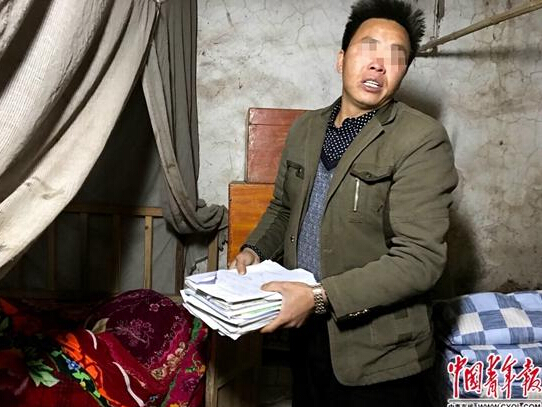Rural boy commits suicide due to father’s blame
A new tomb without a tombstone chills the festive air of a family in Yanxi Village, Zhenxiong Town, Yunnan Province. The family lost a son to suicide on the Eve of Spring Festival, which fell on Jan. 27 this year.
|
Xiao Bao’s father collects his son’s effects. [Photo:China Youth Daily] |
The boy was named Xiao Bao (pseudonym), a left-behind child growing up with his paternal grandparents in the village while his parents worked odd jobs in Kunming, the capital of Yunnan Province.
In his last words, Bao claimed, “I was still young and I didn’t want to die, but I can’t handle the complaints. Dad, you must be happy when I die. It is you rather than anyone else to be blamed for my death.”
In a dilapidated house, Bao’s grandmother couldn’t help shedding tears when talking about the tragedy of her eldest grandson, who was raised up by her and her husband since he was one year old.
Despite his rare opportunities to be reunited with his parents, Bao never ignored his responsibilities at the family farm.
His grandparents never imagined that their eldest grandson would have swallowed pesticide to end his life.
The two recalled that after dinner on that particular day, Bao shut himself alone in his room, where the ceiling is spotted with cobwebs. Later in the night, his grandma heard him vomiting. When she opened the door she was shocked by a strong smell of pesticides – the boy had drunk down half a bottle of dichlorvos.
The grandparents, who tried to send the agonized boy to hospital, were only informed by the doctor through a phone call that it was too late.
Some villagers later recalled that they had spotted Bao buying pesticides and even two chicken legs.
